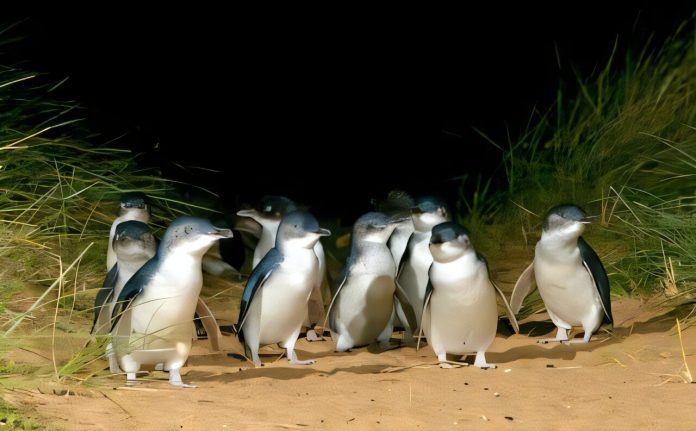
Life isn’t always a beach for Phillip Island’s beloved penguins, who have been found to divorce their partners and find a new mate if they aren’t satisfied with the number of young filling the nest—but it’s a risky decision that can lower success in their next breeding attempt.
New research conducted over more than a decade by Monash University and Phillip Island Nature Parks has taken a deep dive into the complicated love lives of the species to determine what it can predict about the colony’s reproductive future.
The findings are published in the journal Ecology and Evolution.
Researchers have found that the rate of divorce among the penguins is a more reliable predictor of the reproductive success of the colony than environmental factors like habitat change or behavioral traits—such as the time they spend foraging for prey—with more divorces and re-pairings in a breeding season resulting in lower reproductive success across the colony.
Phillip Island is home to the 37,000 little penguins, the world’s largest colony of the species, and the internationally renowned Penguin Parade attracts thousands of visitors each year to watch these amazing seabirds waddle home from the ocean to their burrows at dusk.
Professor Richard Reina, Head of Monash’s Ecophysiology and Conservation Research Group in the School of Biological Sciences, has studied penguins on the island for 20 years and said, contrary to popular belief, not all penguins partner for life.
“In good times, they largely stick with their partners, although there’s often a bit of hanky-panky happening on the side,” Professor Reina said.
“However, after a poor reproductive season, they may try to find a new partner for the next season to increase their breeding success.
“Our study looked across 13 breeding seasons, tracking which individuals changed partners, or divorced, from one season to the next.
We recorded nearly 250 penguin divorces from about a thousand pairs throughout the study, and we found that years with a lower divorce rate resulted in higher breeding success.”
Phillip Island Nature Parks Marine Scientist Professor Andre Chiaradia said the divorce rate was an accurate predictor of success because it more accurately correlated with breeding rates than other factors impacting the penguins.
“Our findings on lower divorce rates among little penguins at Phillip Island under favorable environmental conditions highlight the importance of considering social dynamics alongside environmental factors when designing strategies to protect vulnerable seabird species,” Professor Chiaradia said.
Matt Simpson worked with Professor Reina and Professor Chiaradia on this research as his Honours project while completing a Bachelor of Science at Monash University.
“I’m proud to have been able to make a significant contribution to the conservation of these fascinating birds by helping find new ways of identifying patterns that indicate the health of these bird populations,” Simpson said. “This has been a long time in the making and a lot of work went into it. It was also a fantastic opportunity to gain real-world experience in the field while completing my studies.”
This research is the latest in a decades-strong collaborative relationship between Monash University and Phillip Island Nature Parks.



